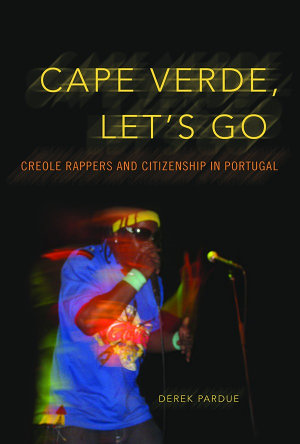Monografisk Happy Hour with Derek Pardue, November 10th , room 4.1.12 at CSS, Øster Farimagsgade 5.
15.00-15.05 Welcome from Antropologforeningen’s chairman Thomas Hughes
15.05-15.35 Presentation of the book ”Cape Verde, Let’s Go: Creole Rappers and Citizenship in Portugal” by Derek Pardue, Associate Professor at the Department of Culture and Society – Brasilian Studies, Aarhus University.
15.35-16.05 Discussion of the book ”Cape Verde, Let’s Go: Creole Rappers and Citizenship in Portugal” by Professor Henrik Vigh from the Department of Anthropology at the University of Copenhagen.
16.05-16.20 Break
16.20-17.00 Open the floor for discussion
We will serve snacks, vine and beer. Everyone is welcome! We look forward to seeing you!
About the monograph:
Musicians rapping in kriolu – a hybrid of Portuguese and West African languages spoken in Cape Verde – have recently emerged from Lisbon’s periphery. They popularize the struggles with identity and belonging among young people in a Cape Verdean immigrant community that shares not only the kriolu language but its culture and history. Drawing on fieldwork and archival research in Portugal and Cape Verde, Derek Pardue introduces Lisbon’s kriolu rap scene and its role in challenging metropolitan Portuguese identities. Pardue demonstrates that Cape Verde, while relatively small within the Portuguese diaspora, offers valuable lessons about the politics of experience and social agency within a postcolonial context that remains poorly understood. As he argues, knowing more about both Cape Verdeans and the Portuguese invites clearer assessments of the relationship between the experience and policies of migration. That in turn allows us to better gauge citizenship as a balance of individual achievement and cultural ascription. Deftly shifting from domestic to public spaces and from social media to ethnographic theory, Pardue describes an overlooked phenomenon transforming Portugal, one sure to have parallels in former colonial powers across twenty-first-century Europe.

